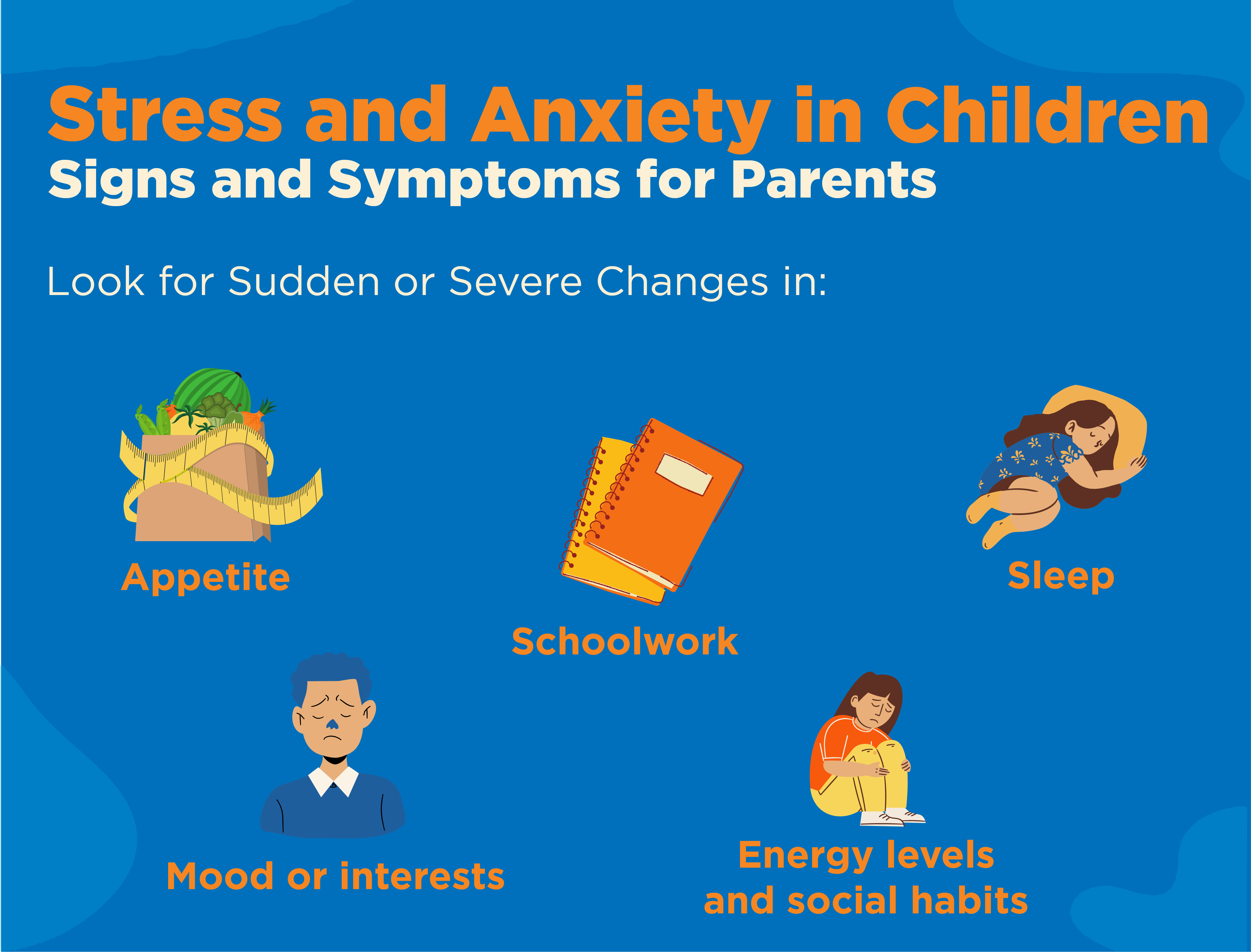How can parents determine if their children may need professional help with behavioral problems? Cigna’s Dr. Stuart Lustig, a child psychiatrist, offers his insights and advice.

Children – and adults – face so many stressors in today’s world, and behavioral health issues have been on the rise since the start of the pandemic. How can parents determine if their children may need professional help with behavioral problems? We asked Dr. Stuart Lustig, a child psychiatrist and the national medical executive for behavioral health for Evernorth, Cigna’s health services business, for his insights and advice.
Let’s start with the big picture. Can you set the stage for us as kids are returning to school in this third academic year affected by COVID?
Absolutely. With kids returning to school, consider the unique challenges in that setting. As a result of distance learning for most students until last year, many students fell behind in education and socialization, and some are still trying to catch up. Some students are living in environments that have become more economically disadvantaged compared with before the pandemic. And educators and school personnel may still be feeling overwhelmed as they struggle to meet their students’ increased educational and emotional needs.
Can you talk about those emotional needs? There seems to be general recognition that kids are struggling more emotionally than before the pandemic.
There has been a lot of media attention on kids’ well-being, or lack thereof. With so much disruption to their routines, not to mention concerns about basic safety and the stability of their environments, it’s not surprising that kids are worse off than they were at the start of 2020, with higher rates of depression, anxiety, and emergency room visits for acute psychiatric conditions. Cigna commissioned Economist Impact to survey 1,100 U.S. parents of teenagers aged 13-17 in April 2022 to better understand the mental health impacts of the COVID-19 pandemic. The results provide further evidence that the pandemic negatively impacted the emotional well-being of most teens, providing new insights by looking through the lens of parents and caregivers. And 80% reported some form of impact on the mental health of their teenage children, including new or increased levels of anxiety, depression, behavioral issues, and problems with social interactions.
What signs can parents can look for that may indicate their children are having a tough time coping with stress and anxiety?
Parents have an important role to play here, because they know their kids the best and are going to be the most sensitive detectors of change. Kids change over time as they develop, of course, but we’re talking about relatively sudden or severe changes. Younger kids may be fussier or clingier, and they may regress in their abilities around eating, sleeping, toileting, or playing independently. For older school-age children and adolescents, parents should be on the lookout for changes in sleep, appetite, weight, mood, their interest in doing things with others, their energy levels, their ability to get their schoolwork done, or changes in their physical appearance and hygiene. If a fairly sociable kid is now a recluse, that’s a concern. If a kid who was getting A’s and B’s at school is struggling to get C’s, be proactive.

Along those lines, are there signs educators can look for in the school setting to help identify students who may be having a tough time dealing with stress or other mental health challenges?
The answer is pretty similar to what we were just discussing. While educators may not know your child as well as you do, they have the advantage of having worked with hundreds or even thousands of students. Of course, they’ll have an easier time detecting a change in your student a bit later in the school year, after they’ve had the benefit of knowing him or her for a few months.
What should parents do if they suspect that their kids are struggling, particularly younger kids?
The first thing to do is talk with your child. Find a time when everyone is as relaxed and undistracted as possible. For younger children, keep it really simple, such as: “All kids think about things that make them sad or mad or scared. What things do you think about that make you sad? Mad? Scared?”
Let them talk for as long as they are willing to, and then you can follow up with more questions until you’re not getting any new information. For many young children, reassurance and minor changes in their routines can make a positive difference.
How should parents approach their older kids if they have concerns?
For older children and adolescents, parents can open a conversation by expressing curiosity in a nonjudgmental way, saying something like, “I notice you don’t really seem yourself lately. Seems like you haven’t liked doing the things you used to like. I wonder what’s been going on for you?”
With teenagers in particular, who may be less willing to open up, it can take time and patience for them to share how they’re feeling. As with younger children, listen for as long as they’re willing to talk, and don’t assume you’ve understood everything perfectly. Reflect back what you think you heard, and ask more questions. You don’t have to have all the answers, and it’s perfectly OK to let them know you’d like to think about what they said and talk more at another point soon.
When should parents get professional help for their kids?
If you’re seeing changes in their moods, routines, interests, or ability to function, or if your (older) child asks for help, it’s time to reach out. And if you see signs of substance abuse, any self-injury (such as cutting behavior), or any indication of a wish to stop living, that’s an urgent issue. Suicidal thoughts with a specific plan warrant a trip to the emergency room. Your insurance company can help you navigate the many options to find the most appropriate type of care, and we at Evernorth Behavioral Health have clinicians available to speak to customers 24/7/365.
The help you need might come from a digital app, a coach, a therapist, or psychiatrist. All of these options may be available virtually even more quickly than in person, and virtual options have a lot of advantages. Sometimes you’ll need to meet with a few clinicians before you find the one who feels like the best fit for everyone. But be persistent. The payoffs are important and can be substantial.
Meanwhile, be proactive about everyone’s well-being. Make sure everyone gets enough sleep, eats healthy, real food while cutting down on sugar and highly processed products, gets some fresh air and exercise, and spends quality time together as a family.

Suicide Awareness and Prevention
Suicide and suicide attempts are devastating acts that can seem to have come from nowhere. Cigna wants everyone affected to know you are never alone.